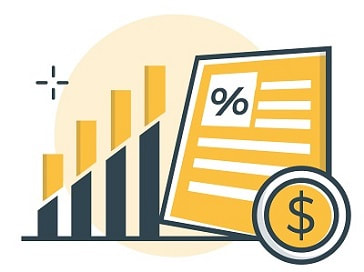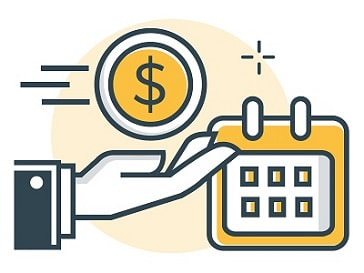10 Top Investments for Young New Zealanders
With rising interest rates, uncertain house prices and high rent costs, many young New Zealanders are understandably unsure about what to invest in. Whether you have $500 or $15,000 (or more), planning for the future is easier if you have money to help you - our guide explains what you can invest in to secure your future.
Updated 14 September 2023
Despite the appeal of luxuries and experiences, which you’re entirely entitled to spend money on, there’s a lot of upside from saving every week, month or when your employer pays you. By investing regularly, you can speed up the prospect of homeownership, an enhanced lifestyle and have security should you find yourself out of work for some time.
In this guide, we outline the most popular investment options that can support your plans and dreams. It all starts with committing to putting away a few dollars regularly. Our guide covers:
Despite the appeal of luxuries and experiences, which you’re entirely entitled to spend money on, there’s a lot of upside from saving every week, month or when your employer pays you. By investing regularly, you can speed up the prospect of homeownership, an enhanced lifestyle and have security should you find yourself out of work for some time.
In this guide, we outline the most popular investment options that can support your plans and dreams. It all starts with committing to putting away a few dollars regularly. Our guide covers:
- KiwiSaver
- Savings accounts
- Term deposits
- Shares
- Funds
- ETFs
- Property
- Cryptocurrency
- Peer to Peer Lending
- Equity Crowdfunding Investing
10 Potential Investment Opportunities for Young New Zealanders
Investing is a long-term commitment. Generally, the earlier you invest, the higher the profits (assuming you have a diversified portfolio). The list below is comprised of what our research team considers to be potential investment opportunities. The exclusion (or inclusion) of any asset or investment type does not financial advice - never invest more than you can afford to lose, and seek independent advice before making any decision.
KiwiSaverKiwiSaver is one of the smartest investment options available in New Zealand. Best of all, making a decent return is almost inevitable. KiwiSaver is free to join and, if you contribute over $1,043 a year, the government will top up $521 to your balance.
What do I need to do? You’ll need to be a KiwiSaver member – if you are already, you don’t need to do anything. If not, our favourite KiwiSaver funds has further guidance. To get the full amount, you need to be at least 18 and contributing at least $1,043 each year between 1 July and 30 June. Anyone with a salary of over $20,000 and contributes every payday should be able to meet that threshold. Over 40 years, the government’s contribution adds up to $20,000, and that’s before taking into account that KiwiSaver funds historically make 2% to 15%+ p.a. returns. Our view: We are huge fans of KiwiSaver – there are few downsides and your investment can be used to buy your first house when the time is right. KiwiSaver fund fees continue to drop as the market becomes more competitive, and your employer will contribute 3% of your salary into your fund. In a nutshell, KiwiSaver is a quiet achiever that has long-term investing rewards. |
Savings accountsSavings accounts may not offer the best investment return (as interest rates remain low), but they have their purpose. Firstly, you’ll earn interest on money that would otherwise sit in your bank account making nothing. Secondly, and perhaps more importantly, your savings account holds money that becomes less accessible and therefore lowers the chance of spending it.
What do I need to do? A savings account is easy to set up, but the interest rates differ between banks. We suggest looking at our Best Savings Accounts guide to see the latest offers. The minimum investment between banks ranges; $500 is a good starting point. Our view: We are huge fans of savings accounts. COVID-19 proved that anyone without cash in the bank could become very financially vulnerable. The most financially secure young New Zealanders have at least three months salary in a savings account – it may seem unobtainable, but contributing $10/week is better than zero. |
Term depositsTerm deposits are like savings accounts, but your money will be locked away for the term (i.e. number of months) you decide at an agreed interest rate. If you have a long-term goal for a sum of money, term deposits help you protect your investment and achieve the goal.
Important: Term deposits are fixed, so you won’t be able to withdraw your money without a penalty. For this reason alone, it’s essential to make sure you won’t need the money for the term. If in doubt, don’t invest in a term deposit as savings accounts offer more flexibility at a similar interest rate. What do I need to do? Term deposit rates differ between banks - we suggest looking at our Best Term Deposits guide to see the latest offers. The minimum investment between banks ranges; $1,000 is a good starting point. If you earn at the higher tax rate, PIE term deposits can appeal. Our view: We like term deposits because they lock away money and are perfect for helping turn investment goals into reality. However, right now, interest rates are incredibly low; inflation will eat into the after-tax returns. Term investments are a good option if you want to diversify your investments beyond shares, funds and KiwiSaver as the amount you invest has a near-to-zero risk of falling in value. |
SharesInvesting in shares, also known as stocks or securities, have become more accessible since the launch of DIY investing platforms such as Superhero, Tiger Brokers, Sharesies, Hatch and Stake. Shares can be intimidating, and there’s a lot of options for investing, but you can build up a portfolio without too much risk. Generally, people make money buying shares do so when there is a rise in the share price.
For example, buying 1,000 shares of Xero at $1 (total cost = $1,000) and selling them at $80 (total profit = $80,000 - $1,000 = $79,000). Every time you buy and sell shares, you’ll pay a brokerage fee. To reduce the costs, the best starting point is finding a platform that charges low brokerage so that fees don’t eat up any profits. Sharesies is arguably New Zealand’s cheapest share broker for low-value trades, while Hatch and Stake should be considered for US shares. Important: Shares can be high-risk investing, as what goes up in price can often come down. Many shares in New Zealand have gone from $2 to 20 cents – Rakon, Burger Fuel, Sky TV, Pacific Edge and GeoOp are all recent examples. This means if you’d invested $1,000, your shares would be worth $100. What do I need to do? Start researching what companies make suitable investments by reading the New Zealand business news on Stuff.co.nz and the NZHerald.co.nz. This will help you get familiar with companies in the news. It’s very unwise to pick shares at random based on what you may read on a Facebook post or what a friend tells you. Once you’re comfortable with making some choices, registering for an investment app or platform is a good idea. Our view: Shares are volatile, meaning the value of your investment will change daily. For every Xero or A2 Milk, there are plenty of underperforming companies that destroy investor wealth. For this reason, it’s best to start small and make less-costly mistakes as you gain experience and insights. It’s also wise to diversify the industries you buy shares in to lower the risk. |
Managed Funds and Index FundsA managed fund is an investment that pools your money together with other investors. The managed fund then buys shares, bonds and/or other securities; what they hold is known as an ‘investment portfolio’. While this may sound complicated, for investors using a managed fund is quite simple. Managed funds are, as their name suggested, managed by someone known as a portfolio manager - the value of the managed fund changes daily based on the performance of the investments.
Some managed funds are active, meaning they are run by professionals who buy and sell investments to maximise the return of the fund. Other funds are index funds, known as passive, which follow a particular market index, such as the NZX50 or S&P500. Because there are no investment managers, index funds have lower fees than managed funds as less management and transaction costs are needed to run the fund. What do I need to do? The first thing to know is that funds, either managed or index, are long-term investments. To understand more about what’s involved, our guides to index funds and managed funds have more detail. There are hundreds of options available, all with varying degrees of risk. Our Passive Investing vs Active Investing guide has further details. Our view: Managed funds offer diversity given the number of shares and bonds held. InvestNow is a popular place for small investments as it provides a large selection of managed funds without the traditional minimum investment amount required by funds taking direct money from investors. However, it doesn't offer all index funds - Kernel and Simplicity Investment Funds are available directly. The Booster Private Land and Property Fund is a specific example of an income-producing fund that pays out returns in cash. |
ETFsETFs, or Exchange Traded Funds, operate in a similar way to index funds, but instead, they’re bought and sold on the sharemarket. Our guide to index funds vs ETFs explains the differences in detail. While there are about 30 ETFs listed on the NZX, there are more opportunities overseas. For example, the US share markets list hundreds of ETFs which are available through platforms like Hatch, Stake and Sharesies. Popular ETFs include the Vanguard S&P 500 (VOO), which invests in the 500 largest American companies, and Smartshares NZ TOP 50 (FNZ), which invests in the 50 largest New Zealand companies.
What do I need to do? For new investors, the most popular place to buy ETFs is via an investing app. The best apps don’t charge ongoing membership fees as this eats into your returns. Popular options include:
Our view: ETFs are a popular long-term investment. The idea is that, over time, a sharemarket index will outperform managed fund performance. While ETFs don’t offer much excitement, they are low-fee investment opportunities that offer diversification. |
PropertyProperty investments come in two forms, either direct (i.e. buying a house or apartment), or indirect (i.e. buying a property-focused index fund or ETF, or shares in a property company).
Buying a rental property is a big move, but some young New Zealanders do it before buying their first owner-occupied home. If you’re serious about a rental property, it is by no means a fool-proof investment. This guide from Opes Partners helpfully explains everything you need to know about rental property (and there’s a lot to consider). If you prefer to take advantage of potential increases in property values, many shares, ETFs and index funds exist that invest in property companies. The companies that underlay the investments don’t usually own residential property so that capital gains may be lower. Nonetheless, if you are planning to diversify your investment, then they offer a low-risk opportunity. Examples include:
What do I need to do? Learn about investment property’s pros and cons before diving in. There are a lot of mistakes that first-time investors make which you can easily avoid. Rental property usually loses money for investors when capital gains plateau and the property is vacant for long periods. The Opes Partners guide carefully presents all the risks. Going into rental property without a plan is almost certainly asking for problems. Our view: Whether you take the plunge and go for a stand-alone investment property, or take a passive property index fund or similar, property is a long-term investment. |
CryptocurrenciesMoneyHub is frequently asked about cryptocurrency investments. Our view is simple – never invest anything that you can’t afford to lose. If you’re interested in investing in Bitcoin, Ripple or something else, there’s plenty of exchanges that will take your money.
What do I need to do? Find a reliable and trusted exchange – the story of Cryptopia is a warning to making you’re your investment will stay secure and not be compromised. Make sure that the exchange has a friendly interface with New Zealand banking systems so you can get your money back in NZD when you sell your holding. Our view: Cryptocurrency has a history of attracting some less-than-desirable people, as well as having no financial market regulation. Also, during the Bitcoin boom, some people lost far more than they expected having borrowed money to invest only to see the prices crash. If you’re interested in cryptocurrency, you likely have a preferred currency, and just like any investment, it can increase and decrease in value. More information? Our guide to how to buy Bitcoin in New Zealand has further details about the basics (but please approach with caution - it is very risky). |
Peer-to-peer lending (P2P)Also known as crowd-lending, P2P websites are financial platforms that match investor money with personal loan and mortgage borrowers. Peer to peer lending offers 5% to 8%+ p.a.
It’s a simple process - borrowers apply for loans via a peer-to-peer platform's website, and if they are approved, investors fund the loans charging them an agreed-upon interest rate. The platform’s credit control team weed out bad borrowers so that the loans presented for funding are from high-quality applicants. However, if a borrower doesn't repay, later on, your investment can be reduced. What do I need to do? Currently, only Lending Crowd, Squirrel and Zagga offer peer to peer investing opportunities. The platforms are free to join and lending can be competitive, and many loans are funded within minutes. Our guide to peer-to-peer lending has more details and covers everything you need to know before signing up to lend. Our view: We like peer-to-peer lending; however, as any bank or finance company knows all too well, some borrowers don’t repay. While the peer-to-peer lending platform has procedures to collect outstanding money, there is a chance you won’t be repaid. As with any investment, never invest more than you can afford to lose. |
Off-market equity investingEquity crowdfunding occurs when an investor buys shares in a private company that lists on a crowdfunding website such as Pledge Me or Snowball Effect. While it’s relatively new, thousands of young New Zealanders have taken to it and made some investments which have turned out to offer record returns. However, early-stage venture funding (which, arguably, most equity investing is) is as high risk as it is high reward. Investors often put in between as little as $100 (or as much as $10,000+) hoping that the investment will be successful.
What do I need to do? Our guide to crowd funding and equity investing explains how the process works, the pros, cons and must-know information. To be better informed, a good starting point is to subscribe to Pledge Me and Snowball Effect’s newsletters. These list upcoming campaigns and promote investing events that may help you understand the platforms further. Our view: We’ve seen some record successes with equity investing. Specifically, our estimates suggest early investors in Ethique (via Pledge Me) who pledged $500 in 2015 received between $20,000 and $75,000 in late 2020. But this is by no means the norm, and this form of investing generally takes a long time to see any results. |
Best Investments for Young New Zealanders - Frequently Asked Questions
Investing can be complicated - our FAQs below help you navigate what you need to know.
What is the best investment for a young person in New Zealand?
Before investing, make sure high interest debts are paid off (for example, credit cards, store cards and personal loans). As the interest rates for consumer-type debts are likely to be 10% to 20% p.a. (or more), it's unlikely investing will give you this type of return. After that, we believe that KiwiSaver is an excellent scheme given the government and your employer contributes year after year (once you turn 18).
When it comes to investing, consider diversifying - high-interest term deposits, index funds, peer-to-peer loans (preferably secured) and choosing robust shares (either New Zealand companies, or overseas) can build the foundations for a solid future of financial freedom.
When it comes to investing, consider diversifying - high-interest term deposits, index funds, peer-to-peer loans (preferably secured) and choosing robust shares (either New Zealand companies, or overseas) can build the foundations for a solid future of financial freedom.
What investments have the highest rate of return?
While past performance is no guarantee of future results, the share market has historically outperformed every other mainstream investment. However, investing in the share market, either through a managed fund, ETFs, KiwiSaver or a specific share, has risk. Your investment may drop in value if the share price of a company falls. The Share market is considered to be a long-term investment option.
What is the best way to invest $10,000?
A popular option is to diversify your money into a number of different asset types. This could include a high-interest term deposit, an index fund, a number of peer-to-peer loans (preferably secured), all while ensuring you're regularly contributing to KiwiSaver to get all the benefits.
















